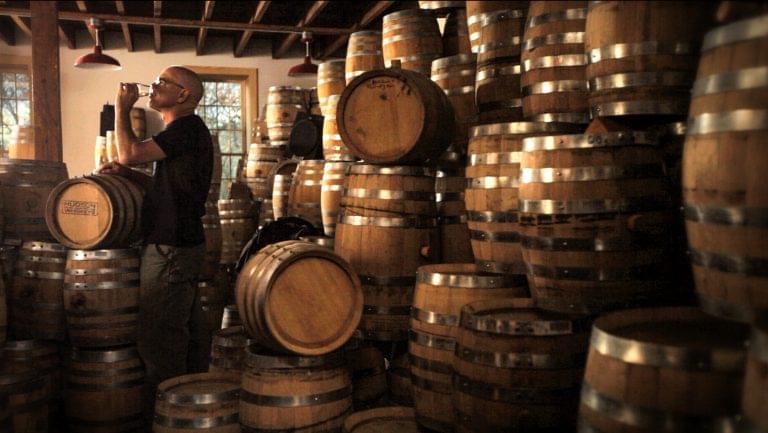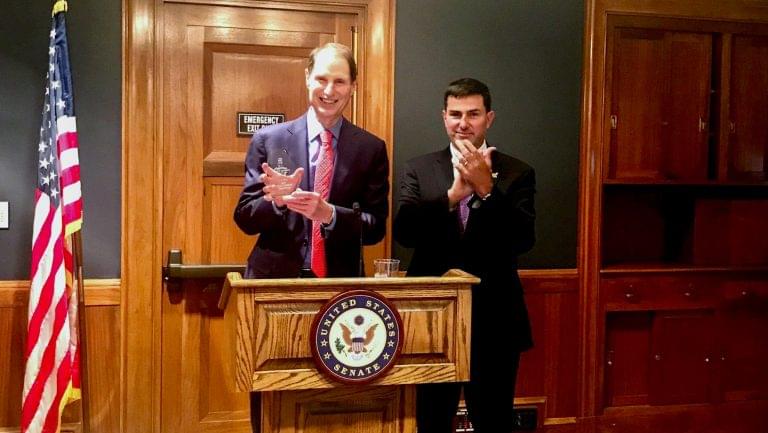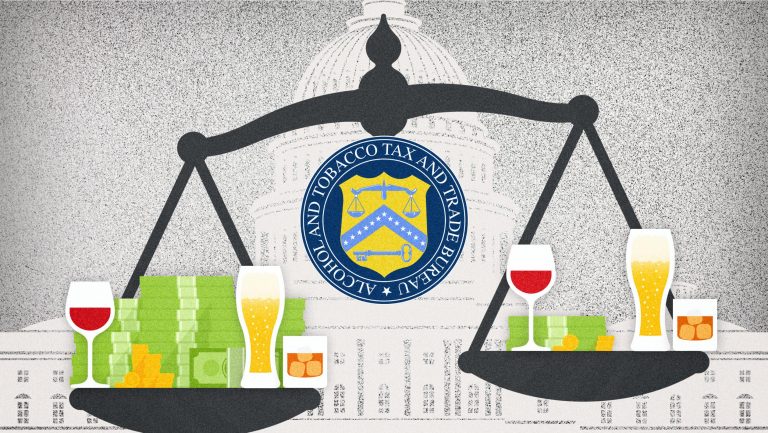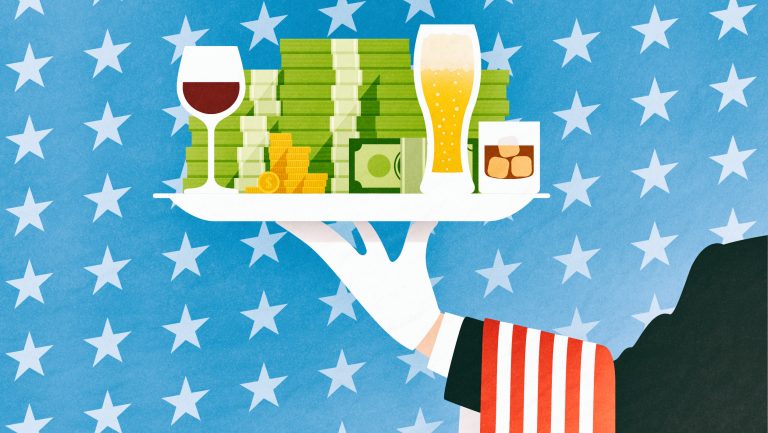After a successful career building rock-climbing gyms in Manhattan, in the early 2000s Ralph Erenzo decided to move to the Hudson Valley to open a climbers’ ranch. Unfortunately, his neighbors in the quiet town of Gardiner wanted no part of that, forcing him to come up with another plan. The 36-acre farm he’d purchased was zoned for agriculture, which meant he could open a winery—but he didn’t care about wine. Then he realized there were no craft distilleries in New York state. Perhaps that was because you had to pay a permit fee of $65,000 to get started. Unless, he thought, maybe he could utilize an A-1 distiller’s license to make and sell whiskey from his farm—the way small breweries and wineries were allowed to produce and sell beer and wine straight from the source.
“I contacted Maurice Hinchey, my congressman, who told me my first step in New York was to contact a guy named Kevin Cahill, the local assemblyman. I went into his office and literally asked him, ‘How do you get a law amended?’”
H.R. 777 was Erenzo’s first attempt to create some parity with craft brewers and winemakers for Tuthilltown Spirits, the distillery he opened in 2005. Hinchey introduced the bill at Erenzo’s urging, but it didn’t immediately pass. Instead, it took Erenzo many years and a whole lot of lobbying to finally get it passed—something all too often necessary today in the booze industry. While making craft whiskey or gin may seem like a sexy job, a good portion of a craft distiller’s time can also be spent talking to politicians, trying to get laws amended, eliminated, or even written in the first place.

Don’t miss the latest drinks industry news and insights. Sign up for our award-winning newsletters and get insider intel, resources, and trends delivered to your inbox every week.
One of the biggest economic issues currently facing craft distillers is federal excise tax (FET) reform. Craft distilleries currently pay approximately six times more excise tax than craft breweries of the same size—and a whopping seventeen times more than small winemakers—something all distilleries, but mainly the little guys, would like lowered.
“People started realizing ten years ago [that] if you’re paying 10 to 20 percent of your revenue on taxes, there’s only so far you can go,” explains Thomas Mooney, co-owner and CEO of House Spirits, a distillery and tasting room that was founded in Portland, Oregon, in 2004.
Of course, politicians have countless issues they could pursue to help their constituencies, so they’re not likely to go out of their way to try and reform something unless their electorate specifically approaches them and convinces them of the potential benefits. When working in a field as divisive and esoteric as alcohol distilling, knowing how to persuade a politician with simple language is key if you want to effect change.
Erenzo’s main strategy is not to focus on alcohol production but on the ancillary benefits it offers the economy. “When I’d go to Albany [the state capital], I’d focus on tourism, agriculture, added jobs, taxes,” he says. “Alcohol was the last thing I’d talk about.” Erenzo explains to his politicians that amending FET laws to benefit distilleries would also change the face of local agriculture. That helped convince the powerful New York Farm Bureau to lobby for him when they realized their growers could sell him their fruits and grain rather than entering the commodity marketplace.

“You walk into an office [in D.C.] and you have five minutes to make your pitch,” says Mooney. “Of course we want to pay less taxes—but that’s everyone who has ever walked into that office!” Craft distillers, he explains, need to be candid with politicians and flat-out tell them that there “isn’t going to be a craft spirits sector in your state if this [FET] law doesn’t change quickly.”
The reason craft breweries and small wineries pay far more favorable excise tax rates than distilleries is because their smaller-scale artisans came into being a whole lot earlier and thus formed trade groups earlier as well. You can track the start of craft brewing in America back to Fritz Maytag taking over Anchor Brewing in 1965; the Brewers Association formed in 1978 and now counts over 5,000 members. The first FET reform for small breweries went into effect back in 1976. WineAmerica was likewise founded in 1978 and now serves wineries in all 50 states. Meanwhile, craft distilleries didn’t even have their own nonprofit trade group until the formation of the American Craft Spirits Association (ACSA) in 2013.
Mark Shilling, a longtime lobbyist in Austin, Texas, who helped start Revolution Spirits in 2010 and now runs Shilling Crafted, serves as the ACSA’s president of the board of directors. He estimates that only around 15 percent of craft distilleries throughout the U.S. are active in their local chapter of ACSA. “Hell, if we could get just 50 percent of these distilleries actively engaged within their state,” he says, “we couldn’t move mountains, but we could damn sure move legislatures.” Lack of widespread craft distillery support may be one reason why FET reform has taken so long to pass.
Mooney explains that key craft distilleries like Rogue Spirits in Oregon, Wood’s High Mountain Distillery in Colorado, Privateer Rum in Massachusetts, and many others have been working on getting it passed for nearly a decade. It’s a slow process of constantly talking to legislators and pushing the issues—and it makes sense to approach senators and congressmen on both sides of the aisle.
“Congress is the most partisan place on earth,” explains Shilling. “Those guys don’t say hello to each other in the hallway. But [with regard to] these issues, [they] are pretty close to 50/50 on both sides.” He believes that’s because politicians are starting to realize that many voters stand to benefit. The first FET reform bill was filed by a Democratic congressman in a Republican-controlled house. That bill wasn’t even about reducing excise tax—it was simply pushing a tax credit, something Republicans typically won’t support as they don’t see it as true tax reform.
In January of this year, the Craft Beverage Modernization and Tax Reform Act was introduced. If passed, the bill would actually lower federal excise taxes for distilleries from $13.50 to $2.70 per proof gallon for the first 100,000 gallons produced. It’s co-authored by Democrat Ron Wyden of Oregon and Republican Erik Paulsen of Minnesota. Mooney calls Wyden the “patron saint of craft producers” and praises his relentless efforts to get the bill passed. Shilling says he is starting to feel optimistic; he thinks it may finally happen by the end of this year or next. Until then, the ACSA will continue lobbying for the issue.
Just like Erenzo did back in the early aughts.
It took Erenzo several years to eventually get the terms of New York State’s class A-1 distilling license amended so he could sell whiskey straight from his farm. Then-governor George Pataki initially vetoed the Farm Distillery Act when it first hit his desk. The next governor, Eliot Spitzer, passed it into law in 2007, but his successor, David Paterson, mostly ignored it. “Then [Governor Andrew] Cuomo came in and said, ‘Make it work.’ He saw the potential,” explains Erenzo, who notes his Tuthilltown Spirits now has 35 employees and last year had 30,000 visitors to the distillery. It’s been a boon to the local economy—and today there are more than 150 craft distilleries in New York State, and another 1,300-plus nationwide. If FET reform finally occurs, Erenzo thinks we can expect to see an explosion of new distilling businesses. Until then, he’ll continue talking to politicians.
“All this taught me a valuable lesson,” says Erenzo. “One person can make a difference.”

Dispatch
Sign up for our award-winning newsletter
Don’t miss the latest drinks industry news and insights—delivered to your inbox every week.
Aaron Goldfarb lives in Brooklyn and is the author of How to Fail: The Self-Hurt Guide, The Guide for a Single Man, and The Guide for a Single Woman. His writing on beer has appeared in Esquire, Playboy, The Daily Beast, PUNCH, First We Feast, Serious Eats, Draft Magazine, among others.






